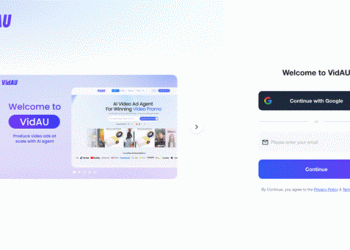Cloud-based email and collaboration platforms have become essential tools for modern businesses, offering flexibility, scalability, and ease of access. However, these benefits come with security challenges that must be addressed to protect sensitive information and ensure business continuity. Here are the top measures businesses can take to secure their cloud-based email and collaboration platforms.
What Is Email Compliance in an Organization?
Before discussing the security measure to secure emails, we must understand email compliance and its policies. Email compliance in an organization refers to the adherence to legal, regulatory, and industry standards governing the use, management, and storage of email communications. It ensures that emails are handled in a manner that protects sensitive information, maintains privacy, and meets legal requirements. Compliance is critical for mitigating risks, avoiding legal penalties, and maintaining the integrity and reputation of the organization.
1. Legal and Regulatory Requirements
Various laws and regulations govern email compliance, depending on the industry and geographical location. These may include:
- General Data Protection Regulation (GDPR): In the European Union, GDPR mandates strict rules on data protection and privacy, including how emails containing personal data are handled.
- Health Insurance Portability and Accountability Act (HIPAA): In the healthcare sector, HIPAA sets standards for protecting sensitive patient information, including email communications.
- Sarbanes-Oxley Act (SOX): For publicly traded companies in the U.S., SOX requires the retention and accessibility of emails related to financial reporting.
- Payment Card Industry Data Security Standard (PCI DSS): In the financial sector, PCI DSS mandates secure handling of payment card information, including email transmissions.
2. Email Retention Policies
Organizations must establish and enforce email retention policies to ensure that emails are retained for the required period and can be retrieved when needed. This involves defining:
- Retention Periods: Specifying how long emails must be kept, which varies based on legal and regulatory requirements.
- Archiving Solutions: Implementing email archiving solutions that store emails securely and allow for easy retrieval and auditing.
- Deletion Policies: Ensuring that emails are deleted in accordance with retention policies to reduce storage costs and minimize risk.
3. Data Protection and Privacy
Email compliance involves protecting the confidentiality and integrity of email communications. Key aspects include:
- Encryption: Using encryption to secure email content during transmission and storage, preventing unauthorized access.
- Access Controls: Implementing strict access controls to ensure that only authorized personnel can access sensitive emails.
- Data Loss Prevention (DLP): Deploying DLP solutions to detect and prevent the unauthorized sharing of sensitive information via email.
4. Monitoring and Auditing
Regular monitoring and auditing of email communications are essential for ensuring compliance. This involves:
- Email Monitoring: Continuously monitoring email traffic for compliance violations, suspicious activities, and potential security threats.
- Audit Trails: Maintaining detailed audit trails of email communications, including timestamps, sender and recipient information, and any modifications.
- Regular Audits: Conducting regular audits to review email compliance practices, identify gaps, and implement corrective actions.
5. Employee Training and Awareness
Ensuring that employees understand and adhere to email compliance policies is crucial. This includes:
- Training Programs: Providing comprehensive training programs on email compliance, data protection, and privacy regulations.
- Awareness Campaigns: Running awareness campaigns to reinforce the importance of email compliance and best practices.
- Policies and Procedures: Clearly communicating email compliance policies and procedures to all employees and ensuring they are accessible.
6. Incident Response and Management
Organizations must be prepared to respond to email-related incidents, such as data breaches or compliance violations. This involves:
- Incident Response Plan: Developing and maintaining an incident response plan that outlines the steps to take in the event of a compliance breach.
- Reporting Mechanisms: Establishing mechanisms for reporting and investigating compliance violations or security incidents.
- Corrective Actions: Implementing corrective actions to address identified issues and prevent future occurrences.
7. Vendor and Third-Party Management
Many organizations rely on third-party email service providers. Ensuring that these providers comply with relevant regulations and standards is essential. This involves:
- Vendor Assessments: Conducting thorough assessments of email service providers to ensure they meet compliance requirements.
- Service Level Agreements (SLAs): Including compliance and security requirements in SLAs with email service providers.
- Ongoing Monitoring: Regularly monitoring and auditing third-party providers to ensure continued compliance.
6 Top Measures to Secure Cloud-Based Emails
Use these measures to make your email more secure:
1- Implement Strong Access Controls
Access control is the foundation of cloud security. To secure cloud-based platforms:
- Use Multi-Factor Authentication (MFA): Require multiple forms of verification to access accounts, such as passwords, biometrics, or security tokens.
- Enforce Strong Password Policies: Implement policies requiring complex passwords and regular password changes to reduce the risk of unauthorized access.
- Limit Access Based on Roles: Assign access permissions based on user roles and responsibilities, ensuring employees only access the information necessary for their tasks.
2- Conduct Regular Security Audits
Regular security audits help identify vulnerabilities and ensure compliance with security policies. Businesses should:
- Perform Internal Audits: Conduct regular internal security audits to assess the effectiveness of security measures and identify areas for improvement.
- Engage Third-Party Auditors: Hire external security experts to perform thorough assessments and provide unbiased evaluations of security practices.
- Review Audit Findings: Act on audit findings promptly, implementing recommended changes to enhance security.
3- Implement Advanced Threat Protection
Advanced threat protection tools help detect and respond to security threats. Businesses should:
- Use Anti-Malware and Anti-Phishing Tools: Deploy tools that detect and block malware, phishing attempts, and other threats in real-time.
- Enable Threat Intelligence: Leverage threat intelligence services to stay informed about emerging threats and vulnerabilities.
- Monitor for Suspicious Activity: Implement continuous monitoring to detect unusual behavior and potential security incidents promptly.
4- Ensure Compliance with Regulations
Compliance with relevant regulations is essential for avoiding legal penalties and protecting sensitive information. Businesses should:
- Understand Applicable Regulations: Identify and understand the regulations that apply to their industry and location, such as GDPR, HIPAA, or CCPA.
- Implement Compliance Measures: Ensure that security measures meet regulatory requirements, including data protection, access control, and breach notification. This can be done through MDM (Mobile Device Management) solutions. The benefits of MDM solutions can greatly enhance the security of organization emails.
- Regularly Review Compliance: Conduct regular reviews to ensure ongoing compliance with changing regulations and industry standards.
5- Backup Data Regularly
Regular data backups are crucial for ensuring business continuity in case of a security breach. Businesses should:
- Implement Automated Backups: Use automated backup solutions to regularly back up email and collaboration platform data.
- Store Backups Securely: Ensure that backups are stored securely, with encryption and access controls in place.
- Test Backup Restoration: Regularly test backup restoration processes to ensure data can be recovered quickly and accurately in case of an incident.
6- Monitor and Respond to Incidents
Proactive monitoring and incident response are vital for mitigating the impact of security breaches. Businesses should:
- Set Up Security Monitoring: Implement continuous monitoring to detect potential security incidents and vulnerabilities.
- Establish an Incident Response Plan: Develop a comprehensive incident response plan that outlines steps for identifying, containing, and recovering from security incidents.
- Conduct Incident Response Drills: Regularly practice incident response drills to ensure that the team is prepared to handle security breaches effectively and efficiently.
- Document and Review Incidents: Maintain detailed records of security incidents, including the response actions taken and the outcomes. Regularly review these records to identify patterns and areas for improvement.
Conclusion
Securing cloud-based email and collaboration platforms is critical for protecting sensitive business information and ensuring operational continuity. By implementing strong access controls, encrypting data, keeping systems updated, conducting regular audits, educating employees, using advanced threat protection, ensuring compliance, backing up data, monitoring incidents, adopting Zero Trust Architecture, utilizing secure collaboration tools, and fostering a culture of security, businesses can significantly enhance their security posture. Taking these measures not only protects against potential threats but also builds trust with customers and stakeholders, ultimately supporting the organization’s long-term success.







